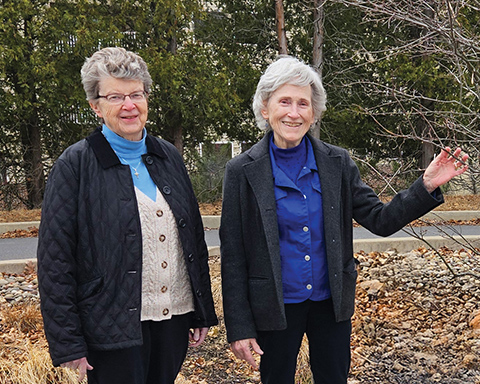Journey
An Intentional Choice
Living simply is an intentional choice—though not always a simple one.
Living simply is an intentional choice—though not always a simple one.
It’s a meaningful act, an act of love and resistance, rich with implications for how we live today and provide for the future. Choosing simplicity invites reflection on our values, habits, and the systems in which we participate.
The authors writing for this edition of Journey address the multifaceted nature of “Living Simply.” They offer insights, examples, and questions that suggest implications for spirituality, personal and communal ethics, lifestyle, and vowed life. They remind us that living simply is not about having less—it is about living with greater purpose, care and connection:
- Live from an abundance of faith, hope and love.
- Be self-emptying in order to be a mystical presence in the world.
- Be wholeheartedly aligned with the mind and heart of Jesus.
- Reflect on your choices and actions for the good of the world.
- Notice that in times of economic hardship, we’re more likely to return to older established practices that repair and restore our world… fixing, mending, thrifting.
- Be good, live simply, love limitlessly.
- Live a simple lifestyle rooted in the Gospel.
- Recognize that “enoughness is a radical act in an economy that is always urging us to consume more” (Kimmerer, 2024).
Ari Wallach, in his book Longpath: Becoming the Great Ancestors Our Future Needs, reminds us that the decisions we make today carry weight far beyond the present moment. He offers readers a reflection from the Talmud on care of the future through long-term vision and selfless dedication:
One day a man named Choni was walking along and saw a man planting a carob tree. Choni asked the man, “How many years will it take until it will bear fruit?” He said to him, “Not for seventy years.” Choni said to him, “Do you really believe you’ll live another seventy years?”
The man answered, “I found this world provided with carob trees, and as my ancestors planted them for me, so, I too, plant them for my descendants (Talmud (Ta’anit 23A – quoted in Longpath by Ari Wallach).
In choosing to live simply, what are we, as faithful ancestors, planting for our descendants



